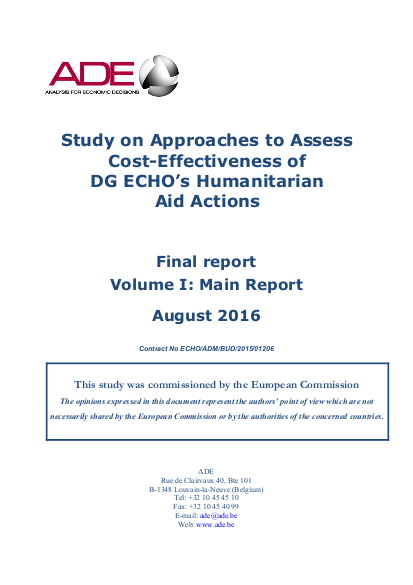
This independent study examines approaches to assess the cost-effectiveness of ECHO’s humanitarian aid operations. It comes at a pertinent time internationally with the World Humanitarian Summit Grand Bargain calling for humanitarian actors to work together efficiently, transparently and harmoniously and to ‘get more means into the hands of people in need’. It is also relevant to reform efforts in the European Commission and ECHO on Better Regulation and improvements to results management through the introduction of standard key output and outcome indicators. The study draws on a range of different sources of evidence including a review of evaluations and literature, numerous interviews, and corporate and project data; resulting guidelines were further tested in a case study. The study produced detailed guidance for assessing cost-effectiveness in ECHO ex-post evaluations. It suggests one Evaluation Question for all geographical evaluations, and provides a minimum and a full package of analysis reflecting different levels of importance given to cost-effectiveness in each particular case. The study also recommends that ECHO considers starting a change management process with the aim of making ECHO a more efficient and cost-effective humanitarian donor. It provides hereby suggestions for adapting ECHO’s management and monitoring systems and structures.